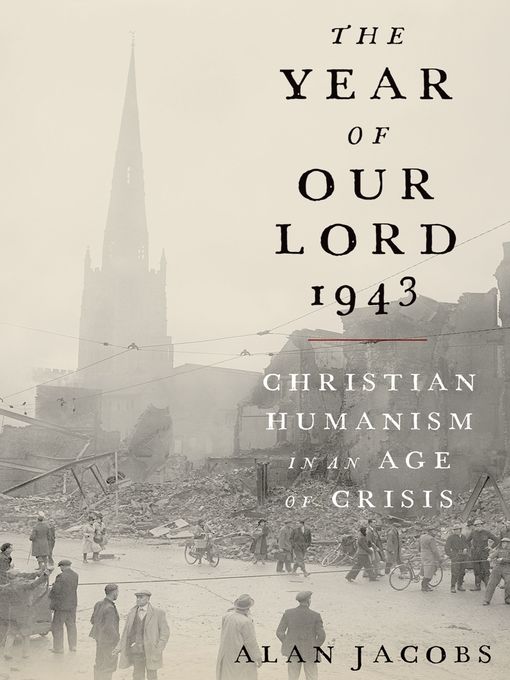
The Year of Our Lord 1943
Christian Humanism in an Age of Crisis
کتاب های مرتبط
- اطلاعات
- نقد و بررسی
- دیدگاه کاربران
نقد و بررسی

June 11, 2018
Jacobs (How to Think), professor of humanities at Baylor University, explores the response of Christian humanists to the global conflagration of WWII in this precise survey. Jacobs focuses on five well-known figures: W.H. Auden, T.S. Eliot, C.S. Lewis, Jacques Maritain, and Simone Weil. Though four of them are white men, they do represent both Catholic and Protestant thought, and were not all in agreement. Taking the year 1943 as a pivot point when the military victory of the allied forces seemed likely, the work considers how Auden, Eliot, Lewis, Maritain, Weil, and their circles made sense of the war and their moral responsibilities during and after the conflict. The book is structured around the questions they posed, and proposed answers to, including: Is our cause just? What is the use of scholarship in wartime? What is the role of the supernatural in worldly evil? What is the role of moral force when confronting new, dangerous technologies? Is patriotism perverse? And what is the place of Christian, humanist education in constructing a more peaceful world? While Jacobs can only begin to scratch the surface of such complex debates, his book is an erudite collective portrait of postwar Christian intellectuals.

June 1, 2018
With the existential battle between fascism and democracy starting to turn in the Allies favor by 1943, the unresolved question was whether democracy had the inherent resources to sustain the peace. Jacobs (humanities, Baylor Univ.; How To Think) presents five intellectuals--Jacques Maritain, T.S. Elliot, W.H. Auden, C.S. Lewis, and Simone Weil--who separately maintained that democratic societies needed to be grounded in a humanistic vision, specifically a Christian one, in contrast to positivistic and pragmatic footings. Although these individuals rarely interacted in their lifetimes, Jacobs develops themes in which their ideas were shared (for instance, the question of righteousness of prosecuting the war). Jacobs concludes that at World War II's close, the advocates for Christian Humanism came to the field too late. VERDICT Jacobs seems to have written this with an eye to the time between the collapse of the Soviet Union in the 1990s and the events of 9/11, when it seemed that democracy had finally achieved peace, only to find it widely rejected. His look at how these five figures struggled with similar turns of events is worth pondering.--James Wetherbee, Wingate Univ. Libs., NC
Copyright 2018 Library Journal, LLC Used with permission.

























دیدگاه کاربران